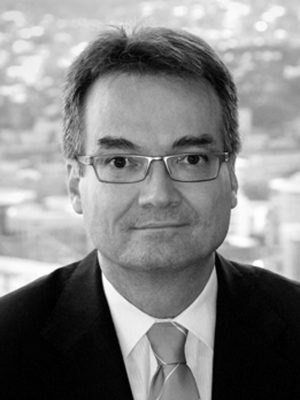List Members Geoff Diehm QC and Katrina Kluss, instructed by Sean Ryan and Charlton Wilson of VBR Lawyers, were successful in setting aside a decision of the Workers’ Compensation Regulator to confirm an earlier decision of WorkCover Queensland which rejected a worker’s request for latent onset terminal condition lump sum compensation pursuant to s 128B of the Workers’ Compensation and Rehabilitation Act 2003 (WCRA).
Facts
Between about 2002 and 2015, the Appellant worked as a stonemason and was exposed to respirable crystalline silica dust in the course of his employment.
In December 2014, the Appellant underwent a CT scan of his chest and on 8 January 2015, he attended upon Dr David Deller, a treating respiratory and sleep physician, who provided several differential diagnoses for nodules seen on the scan, one of which included the possibility of silicosis.
In April 2016, the Appellant lodged a notice of claim for damages with WorkCover for silicosis and rheumatoid arthritis.
In March 2017, the Appellant received a confirmed diagnosis of silicosis following an independent examination by Professor Allen, respiratory and sleep physician.
In July 2018, the Appellant’s common law claim against his employers and the manufacturers of engineered stone products resolved at a compulsory conference.
In November 2018, Dr Deller provided a progress report in which he confirmed a diagnosis of chronic silicosis.
In August 2020, Dr Deller provided a further report in which he opined that, on the balance of probabilities, the Appellant was more likely than not to succumb to progressive silicosis than an alternative disease.
In September 2020, the Appellant applied to WorkCover for a latent onset lump sum payment, pursuant to s 128B of the WCRA, based on Dr Deller’s opinion as to the terminal nature of his diagnosis.
Decisions of WorkCover and the Regulator
WorkCover rejected the Appellant’s application for latent onset lump sum payment on the basis that s 119 of the WCRA operated to end the Appellant’s entitlement to compensation.
The Appellant applied to the Regulator for a review of WorkCover’s decision.
The Regulator subsequently confirmed WorkCover’s decision to reject the application.
Decision of the QIRC
The appeal before the QIRC was by way of a hearing de novo.
At the hearing, the Regulator did not maintain the position that s 119 of the WCRA precluded latent onset injury terminal condition payments under s 128B, which had been the basis for WorkCover’s initial decision to reject the Appellant’s application.
Rather, the central issue for determination was whether the Appellant was diagnosed with silicosis on or after 31 January 2015. The Appellant contended he was. The Respondent contended the Appellant in fact received that diagnosis prior to 31 January 2015.
The date of diagnosis was relevant because the definition of “terminal condition” is contained in s 39A of the WCRA. At the time the Appellant attended the compulsory conference in July 2018, s 39A relevantly provided:
39A Meaning of terminal condition
-
- A terminal condition, of a worker, is a condition certified by a doctor as being a condition that is expected to terminate the worker’s life within 2 years after the terminal nature of the condition is diagnosed.
- A condition is a terminal condition only if the insurer accepts the doctor’s diagnosis of the terminal nature of the condition.
However, on 30 October 2019, the definition of “terminal condition” in s 39A of the WCRA was amended to exclude reference to “within 2 years after the terminal nature of the condition is diagnosed”.[1]
Pursuant to s 732 of the WCRA, the amended definition of “terminal condition” is to apply to a terminal condition only if the latent onset injury to which the condition relates was sustained by a worker on or after 31 January 2015. By s 36A the date on which the injury was sustained is taken to be “the date of the doctor’s diagnosis”.
Following an examination of the evidence and submissions from the parties, the QIRC found that the Appellant had in fact been diagnosed with silicosis after 31 January 2015, notwithstanding the fact the Appellant had referred, in his notice of claim for damages, to a diagnosis by Dr Deller of silicosis on 8 January 2015.
The basis for this finding was that there had been no “act of cerebration by a doctor” prior to Professor Allen’s diagnosis in March 2017, that the Appellant was suffering from silicosis because Dr Deller’s reports up until his report of November 2018, contained a number of hypotheses described as differential diagnoses. The QIRC found “[i]t would be an absurd outcome to determine that the Appellant was suffering from all conditions listed as ‘differential diagnoses’”, and that “[a] list of possible conditions is not a diagnosis”: [46]. The fact the Appellant had been mistaken in his understanding of the diagnosis given by Dr Deller was insufficient to establish a diagnosis had been made in circumstances where Dr Deller had provided numerous reports over a period of some 3.5 years in which he hypothesised as to the possible causes for the Appellant’s symptoms and the first reference to Dr Deller having diagnosed silicosis was not until November 2018.
Having determined the Appellant was diagnosed with silicosis after 31 January 2015 for the purposes of s 732 of the WCRA, it was then necessary for the QIRC to determine whether the Appellant was suffering from a “terminal condition” as defined in s 39A of the WCRA.
The QIRC accepted the terminal nature of the Appellant’s diagnosis of silicosis on the basis of Dr Deller’s opinion that the Appellant was “more likely than not to succumb to progressive silicosis than an alternative disease and that the silicosis will reduce his life expectancy”. The diagnosis had not been challenged by WorkCover or the Regulator and it was therefore inferred that WorkCover had accepted Dr Deller’s diagnosis of the condition for the purposes of s 39A(2) of the WCRA.
The QIRC was therefore satisfied that the evidence supported a conclusion that the Appellant’s latent onset injury was a terminal condition that was first diagnosed in March 2017 for the purposes of ss 732 and 39A of the WCRA, such that the Appellant is entitled to payment by WorkCover of latent onset terminal condition lump sum compensation.
[1] 2019 Act No. 33, s 36.



